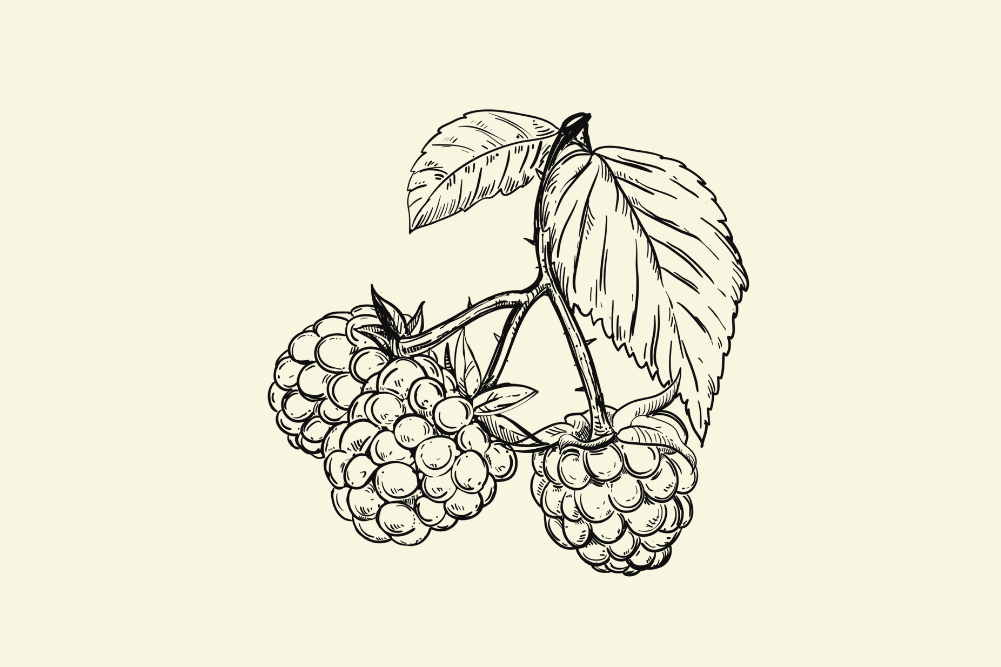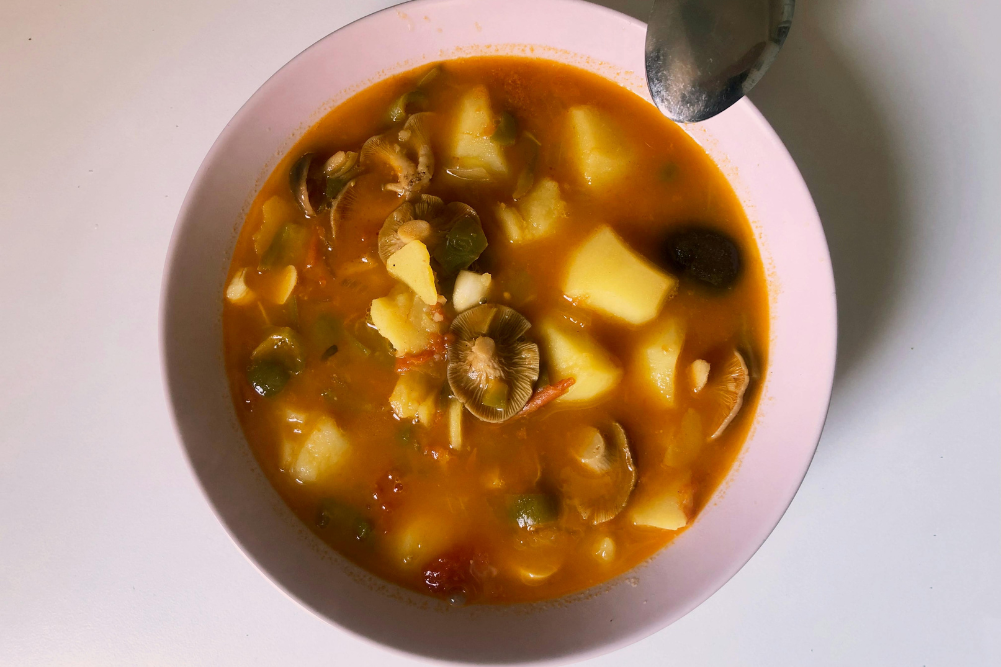Raspberries
Raspberries, a member of the rose family, are as nutritious and delicious as they are beautiful. Rubus idaeus is the common European raspberry but worldwide there are more than 200 species. Raspberries belong to the rose family and come in a variety of colours from white and gold to red, purple and black. The gold are apparently the sweetest and the tastiest but the darker colours have greater nutritional benefit.
Raspberries are the symbol for kindness and are thought to have been consumed since prehistoric times, although they were not cultivated until the 1600s in England and France. Scottish raspberries are still prized for their flavour and quality.
Active ingredients
Raspberries contain the antioxidant and anti-inflammatory compounds anthocyanins, flavonoids, tannins, hydroxybenzoic acids such as ellagic acid, resveratrol, coumaric acid, ketones and ferulic acid, among others. Ellagic acid deserves a special mention as it prevents the overactivity of the pro-inflammatory enzyme COX-2, a major pathway of chronic inflammation.
Raspberries are high in vitamin C, with more per weight than oranges. They contain one of the highest levels of fibre in whole foods. They are also high in folic acid, with potassium, calcium, manganese and the precursor to vitamin A. Red and black raspberries also contain oxalates but these are not a problem unless a person is on an oxalate-restricted diet, as happens with some forms of kidney stones.
Therapeutic uses
Weight management
Raspberry ketones (rheosmin) have been shown to reduce fat deposits in adipocytes, improve fat metabolism, reduce the pro-inflammatory activity of fat cells and decrease the activity of the fat-digesting enzyme pancreatic lipase, reducing fat absorption. Raspberries have also been shown to lower triglyceride levels.
Research suggests the glycosidic flavonoid tiliroside may activate a hormone called adiponectin in our fat cells (very low in those diagnosed with diabetes), which plays a major role in the regulation of blood sugar and obesity.
Raspberries also contain phytonutrients that block the activity of the enzyme alpha-glucosidase. This starch-digesting enzyme breaks down starches into sugars, raising levels of blood sugar following a meal (post-prandial hyperglycaemia). Inhibiting this enzyme is promising for diabetics to better manage their blood sugar.
Inflammatory conditions of the digestive system
Early studies suggest significant antioxidant and anti-inflammatory effects of raspberries may support gut health in conditions such as ulcerative colitis, reducing injury to the colonic epithelium and preventing ulceration. Raspberries can soothe oesophagitis, a common problem causing symptoms of reflux and heartburn. The anti-inflammatory activity of raspberries also reduces the pain and symptoms in Crohn’s disease.
Ellagic acid is released in the gut from the digestion of a phytochemical existing as ellagitannin and it is metabolised by colonic microbiota. Its health benefits include inhibition of inflammation, the alleviation of metabolic syndrome induced by high-fat diets and inducing apoptosis (a process by which the body gets rid of old, damaged or unneeded cells).
Cancer
Apart from colon cancer and oesophageal tumours, raspberries has also been shown to be protective against oestrogen-positive breast cancer (black raspberries particularly) and cervical cancer and its antioxidant and anti-inflammatory effects are important in reducing the proliferation of cancer cells systemically.
Cardiovascular
Red raspberry extracts demonstrated dose-dependent antihypertensive effects in rats, possibly related to increased nitric oxide activation and improvement of vascular endothelial function, a result of its antioxidant effects. These results confirmed that raspberries have potential cardiovascular protective effects.
Antimicrobial: reduction of biofilm formation
A raspberry root compound rich in ellagic acid showed significant inhibition of biofilm formation in Staphylococcus aureus infection.
Raspberry leaf & pregnancy
Any discussion of the therapeutic qualities of raspberries must include a mention of raspberry leaf tea, traditionally drunk during pregnancy to ease the pain and complications of childbirth. Drinking the tea daily (one to two cups per day) from the start of the second trimester has been shown to shorten the second stage of labour and make the birth easier. It has uterine tonic benefits and is haemostatic, reducing excessive bleeding.
A study at Westmead Hospital in Sydney found that consumption of raspberry leaf tea during pregnancy was effective and safe and may help shorten labour. An unexpected finding was that women who ingested raspberry leaf were less likely to receive an artificial rupture of their membranes or require a caesarean section, forceps or vacuum birth than the women in the control group.
Eating raspberries regularly is a delicious, health-promoting activity and raspberry leaf tea in pregnancy can make a significant difference in easing the duration and therefore the pain of childbirth.








